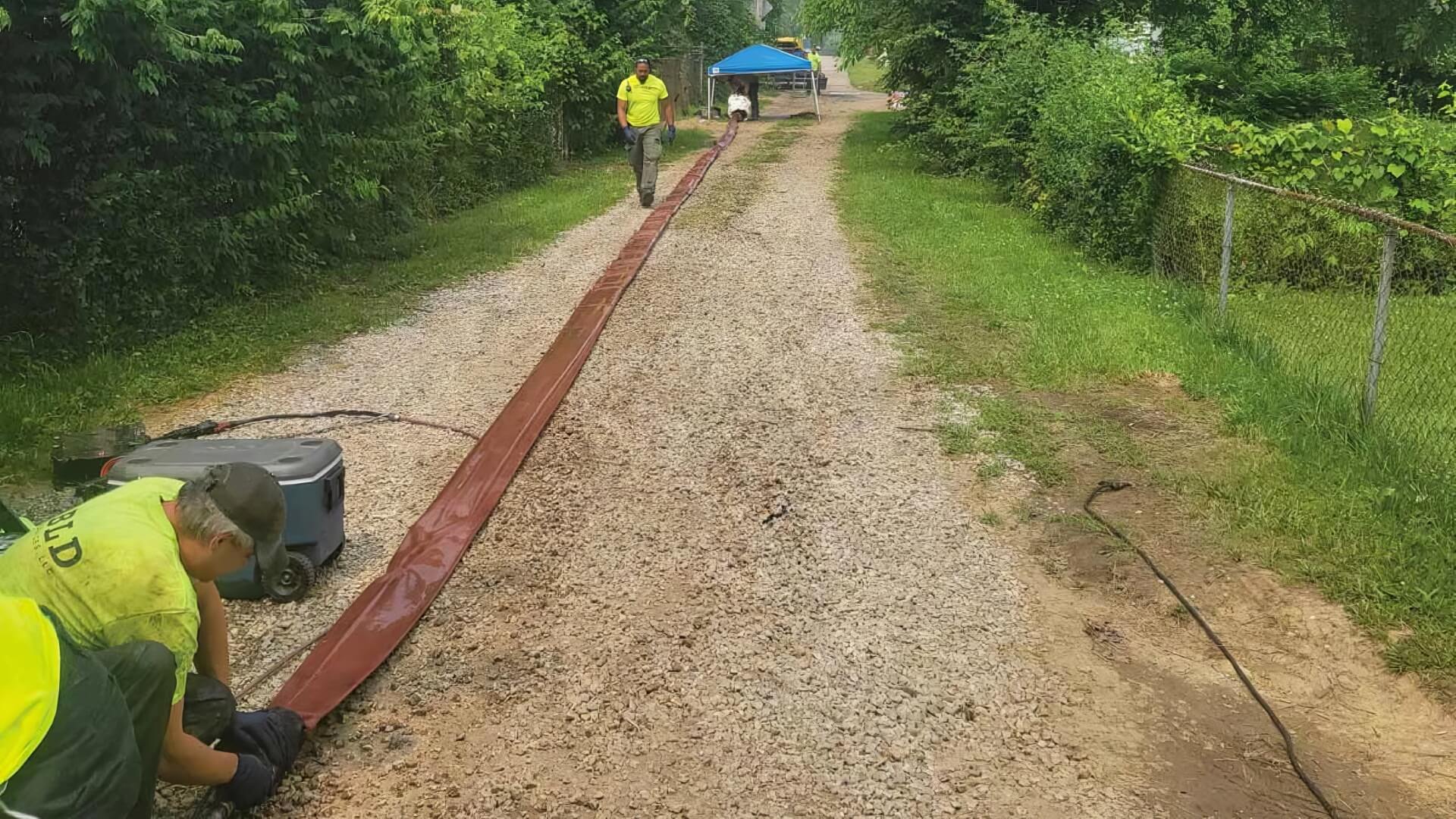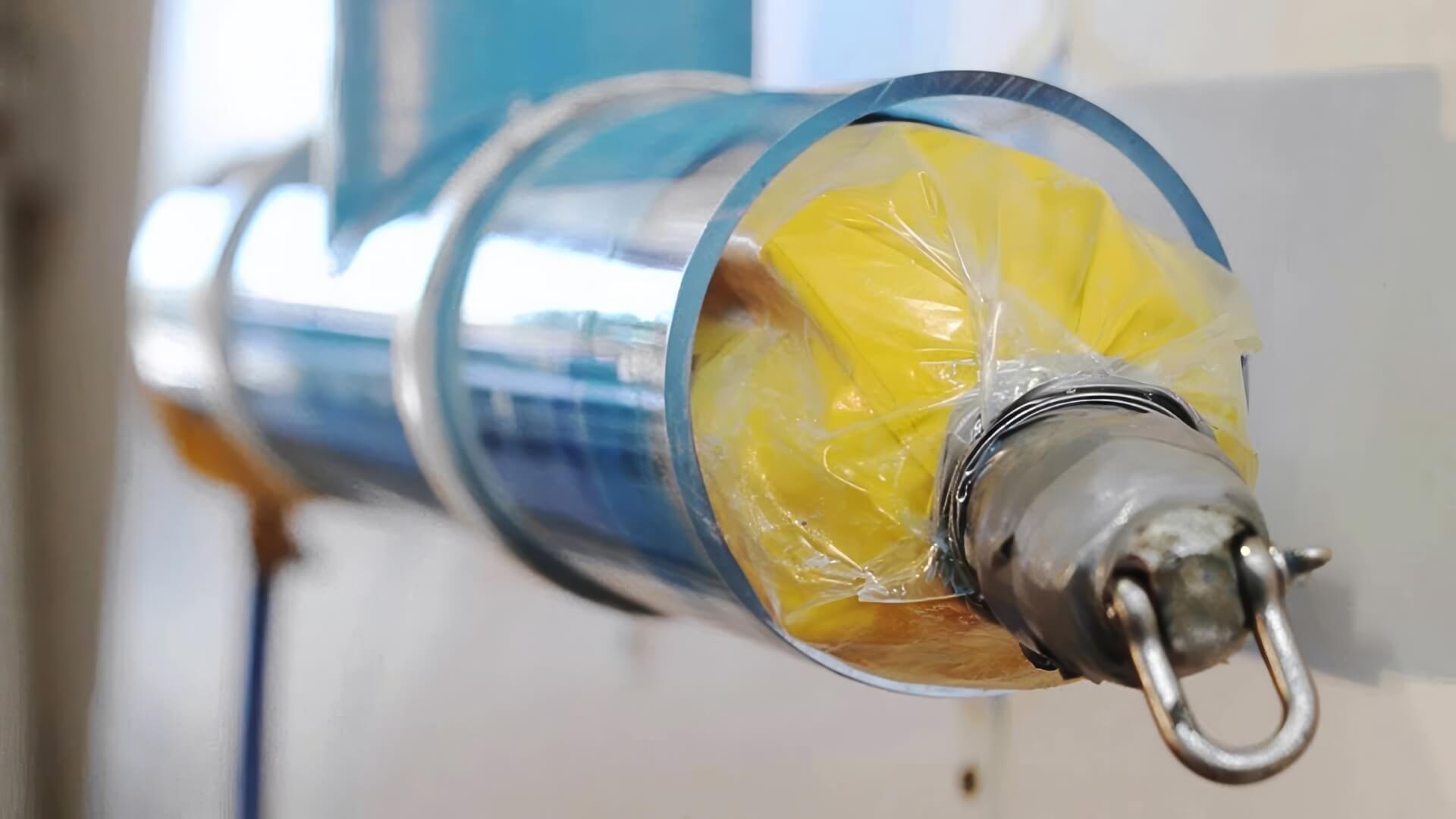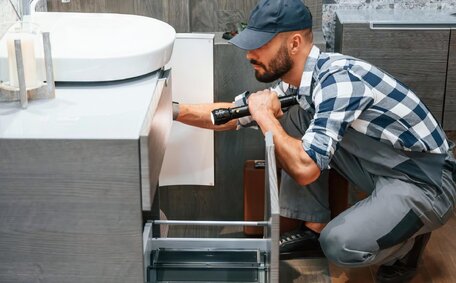Identifying Pipes at Risk for Freezing
Certain pipes in your home are more prone to freezing than others. Pipes located in attics, crawl spaces, basements, garages, and adjacent to exterior walls have the highest risk of freezing. Also, outdoor taps and pipes in uninsulated walls, or those leading to unheated spaces, become potential hazards as the temperature drops below freezing, significantly increasing the chance of freezing and bursting.
Frozen water expands in pipes, elevating pressure and the risk of a burst. Recognising and insulating pipes in vulnerable locations is essential to safeguard them against cold weather.
Examining where pipes navigate in and beyond your residence is crucial to prevent pipes freezing, accounting for lines hooked up to outside spigots, pools, or sprinklers. Prevent ruptures by insulating your water pipes or applying heat tape to them.
Examining where your pipes navigate in unheated interior rooms can help prevent undesirable scenarios. It’s good to deploy thermal imaging to assist in pinpointing a frozen area on pipes, alerting to those predisposed to freeze.
Insulating Vulnerable Water Pipes
Effectively insulating pipes is a crucial step in preventing them from freezing in vulnerable areas. Prevalent insulation methodologies such as fibreglass and foam are effective, as they forge a barrier deterring chilly air and prevent water inside your pipes from freezing.
To insulate pipes, you’ll need to purchase insulation tubes or pipe wrap compatible with the type and size of pipes your home has. Ensure complete coverage of exposed pipes with insulation to prevent cold air exposure.
Guide insulation tubes over every section of pipe, securing seams with insulation tape to guard against gaps and potential freeze points, a simple act you can do to improve protection. For pipe wrap, ponder the merits of utilising a heating pad; this fortifies the insulation snugly around the section, ensuring a tight seal, as a strategy to ensure your pipes freeze less frequently.
Seal insulation ends where pipes enter walls as well.
Encasing outdoor taps with foam guards past the valve handle is critical to lessen the freezing risk inside pipes. Effective lagging hinders thermal transfer, essential in preventing inner-pipe water from freezing during cold spells.
Maintaining Heat in Uninsulated Areas
Knowing how to handle uninsulated spaces, such as attics and basements, is key to preventing freezing and potential bursting of pipes. Set your thermostat to at least 13°C to ensure your water heater keeps unprotected pipes from freezing, similar to adjusting your boiler settings.
Using a space heater strategically can quickly warm areas and stop pipes from freezing, with careful positioning to avoid a fire hazard.
Regular analysis of room temperatures is key to maintaining awareness of the climate in unheated spaces, which is essential for fending off the prospect of your pipes freezing. Let warm air circulate by unlatching interior doors to allow the heated atmosphere to meander through cooler adjacent spaces. Insulate hatches or doors leading to unheated crawl spaces or attics as well.
Open doors to allow warm air from your house into the garage to prevent pipes from freezing and reduce burst risks in low temperatures. Regularly monitor and maintain warmth in rooms to avoid freezing in exposed pipes.
Insulating garage doors gives extra protection and can avert the requirement to thaw pipes in this location.
Allowing Water Flow During Cold Snaps
To hinder water from freezing, Permit a slow drip from indoor taps when it is very cold outside, which can be remarkably effective as your pipes can maintain warmth and avoid freezing. Keep water circulating through your pipes, as standing water is more likely to freeze. Choose sinks located against exterior walls or pipes running to unheated areas to keep flowing.
Let faucets drip slowly to keep water moving and prevent freezing, conserving water as much as possible. Dripping both hot and cold water pipes is ideal since hot water can flow backwards if only cold water drips.
Monitor these flowing faucets and pipes closely during sustained cold snaps.
Adjusting water temperature helps prevent freezing, but care must be taken to avoid scalding when restoring hot water.
Using Technology to Monitor Pipe Temperatures
A smart thermostat gives homeowners increased awareness and control to prevent frozen pipes by monitoring vulnerable plumbing. Battery-powered radio thermostats can alert you to take quick action by notifying you of pipes that are at risk of freezing.
Using an adjustable thermostat like Google Nest can automatically increase heating in response to dropping pipe temperatures. Fit wireless sensors on susceptible pipes to receive alerts and prevent freezing before problems arise.
When sensors detect temperatures nearing a freeze, you receive critical alerts advising you to potentially shut off water to mitigate oncoming icy quandaries. Moisture monitoring systems possess sensors that set off alerts upon water contact, providing early warning of a burst water pipe. Such intelligent devices serve as an added line of defence against emergencies like a frozen burst pipe situation.
Investing in this technology in your home can ensure potential pipe issues get addressed before causing water damage to your property. Alerts notify you of temperature changes and the dire possibility of a frozen pipe burst as it happens, even while you’re away from home. Utilising monitoring systems and temperature sensors helps avoid extensive repairs from burst frozen pipes over the long run.
Preparing for Emergencies with Shut-Off Valves
To be thoroughly primed for likely plumbing adversities like burst pipes, a few tips to keep your main water shut-off valve readily accessible is essential. The main shut off valve is crucial to switch off water supply to your entire residence. To turn off water via this valve instantly halts water flow when pipes succumb to damage.
Label the stopcock clearly for swift identification and shut off in emergencies. Make sure it’s fully accessible and functional - test it periodically. Ensure everyone in your home knows the valve’s location and how to operate it.
If a pipe bursts, the act to turn off water supply at the main shut-off valve immediately can mitigate water damage. Turn off the main water valve, open taps to drain water, and reduce water pressure to minimise damage if a pipe bursts. Reducing the strain on pipes vulnerable to rupture stops catastrophic water release, and calling a licensed plumber quickly helps prevent further harm. Dial to call plumber immediately for professional pipe repair assistance once the water supply is secured.
Emergency preparedness measures, like maintaining accessibility to your home’s main water shut-off valve, enable you to swiftly turn off main water to control major water loss from burst pipes or other plumbing failures until a licenced plumber can complete repairs.
Professional Help for Frozen Pipe Repairs
Refrain from using open flames to thaw frozen pipes because of the significant risk involved. Lengthy encounters with an open flame or intense heat can cause significant damage to the integrity of your pipes – a scenario best avoided. Leave extensive repairs to licenced professionals, and resist the urge to use a hair dryer or other DIY solutions on frozen pipes.
Call a professional if pipes remain iced for too long, show cracks, or if water stains appear on walls or ceilings. Padstow’s licenced plumbers have the tools, expertise and safety equipment to handle these risky situations.
For emergency frozen pipe repairs in Padstow, contact our professional local plumbers at 1300 349 338 or jobs@padstowplumbingservices.com.au. We’re available 24/7 to assess your pipes, safely thaw blockages, and prevent further damage from burst pipes this winter.
Verifying Home Insurance Coverage
Understanding your home insurance is vital to ensure it covers damage from burst pipes, safeguarding your property. Based on statistics, the average insurance claim for water damage, which often stems from issues inside your pipes, is upwards of $15,000. Review your policy or discuss with your insurer to confirm coverage for plumbing malfunctions and associated repairs.
Specifically ask about burst pipe coverage to cover potential leaks and flooding damage during winter months. Obtain written assurance that your policy covers water or freeze damage from appliance and pipe failures. There may be coverage limits, so understand exactly what your provider does and does not cover.
Add water backup or sewer coverage to your policy if it’s not already a provision. This coverage is your bulwark against water that might intrude through conduits or drains, ensuring there no unwanted ingress. Discuss any applicable deductibles and coverage gaps with your provider as well.
Check your plumbing and water damage coverage beforehand for assurance that your insurance will cover repairs in case of frozen pipe emergencies.






